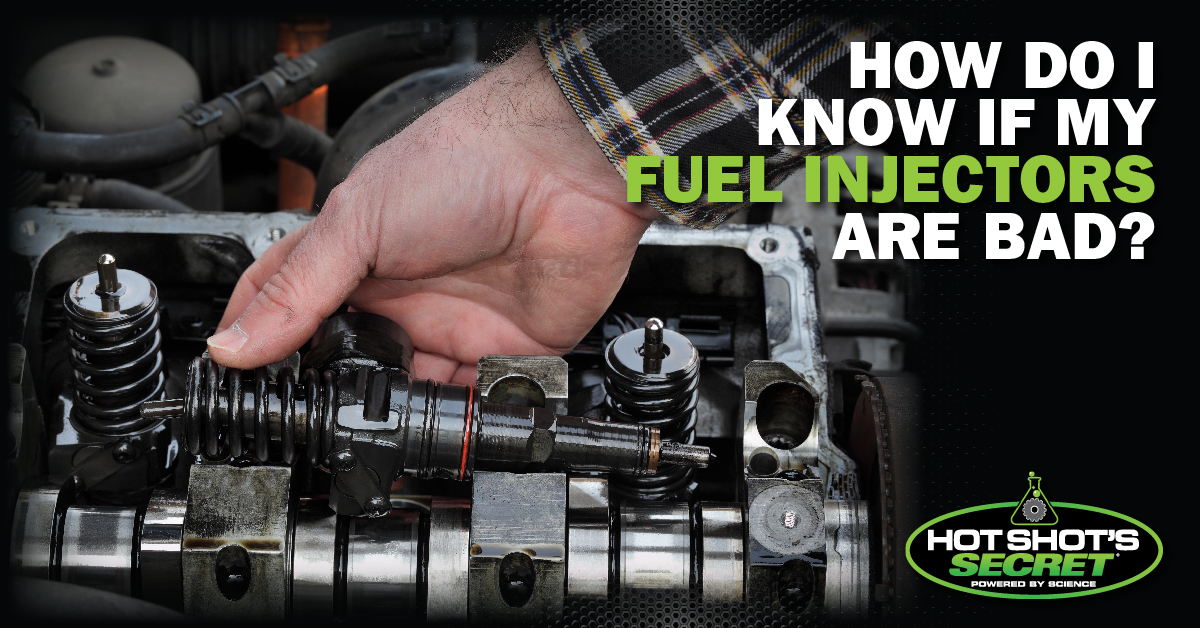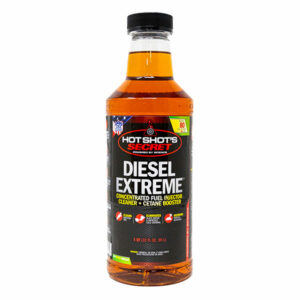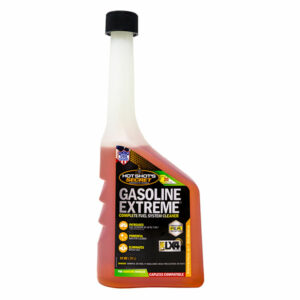
Frequent driving often produces carbon and other deposits within your fuel system. This buildup can lead to a dirty, clogged, leaking or faulty fuel injection system. When a fuel injection fault occurs, your engine receives an inadequate amount of fuel, and you may notice decreased performance or other issues.
The Basics of a Fuel Injector
Your vehicle has an intricate system for maintaining the precise mix of air and fuel your engine needs to function at its best. These components and process steps include:
- A fuel pump to deliver fuel from the tank to the fuel injectors.
- Fuel injectors to spray fuel into the intake manifold or engine cylinders, where it mixes with air.
- A combustion chamber to receive and compress the air-fuel mix and spur the chemical reaction powering your engine.
Since the system essentially forms a pathway between your fuel tank and your engine, it’s easy to see how dirty fuel injectors can affect the process.
Can Fuel Injectors Go Bad?
Fuel injector failure can occur for various reasons and lead to several complications. Fuel injectors can go bad because they are prone to contamination, component failure and electrical complications.
What Are the Symptoms of Bad Fuel Injectors?
Several bad fuel injector symptoms can alert you to a potential issue.
Misfire
If you’ve noticed vibrating sensations or delayed acceleration, a misfire could be the cause. Engine misfires can result in a temporary loss of power and are a common clogged fuel injector symptom. They occur when the injectors don’t provide the precise air and fuel mixture your vehicle needs at just the right time. Since the delivery and timing are off, the engine doesn’t burn fuel correctly.
Rough Idle
Your engine should purr or even rumble — it’s not supposed to shake, sputter or stall when idling. Again, these sounds and issues result from an engine not getting the right combination of fuel and air. You may also notice dropping RPMs or uncommon noises while sitting in traffic or at a red light.
Bad Gas Mileage
When your fuel injectors perform at their best, you’re more likely to get the fuel economy your vehicle’s manufacturer advertised. A sudden increase in fuel consumption can indicate dirty, clogged or leaky injectors — the fuel system’s controls will automatically send more fuel to the combustion chamber when it doesn’t receive enough to fire properly.
A Flaky RPM Needle
Fuel injectors affect your dash’s RPM gauge. When they experience issues, you may see the tachometer jump around unpredictably in response to an incorrect fuel-air mix. With too much fuel, the engine surges and RPM increases despite the same load.
Won’t Start, or the Check-Engine Light Comes On
Failure to start may not always indicate fuel injector issues, but it can be in more severe cases. When no fuel hits the right cylinders, it’s impossible for the engine to execute its combustion. A check engine light remaining steadily lit or blinking is another common symptom of bad fuel injectors.
A Fuel Leak
If you notice the smell of fuel in your vehicle interior while driving, especially if any of the symptoms described above accompany the odor, your injectors may have a leak. Other signs indicating a possible leak include fuel pooling beneath the vehicle or on the injector exteriors.
A leaking fuel injector can create:
- More emissions
- Idling issues
- More fuel consumption
- Hard starting
Fuel leaks are a fire hazard, so it’s best to address them as soon as possible.
Common Reasons for Fuel Injector Failure
Fuel injector issues often occur for the following reasons:
Contamination and Restriction
Fuel injectors are prone to contamination and carbon deposit accumulation, which can restrict fuel flow. As an engine’s burned fuel flows through the fuel injectors, it can deposit various contaminants that gradually build up. The most common causes of fuel injector contamination are:
- Poor fuel quality
- Frequently driving short distances
- Excessive idling
- Poor fuel system maintenance
- Driving in dusty environments
The following signs may indicate that you have a contaminated fuel injector system:
- Rough idling
- Hard starting
- High fuel consumption
- Check engine light
- Poor fuel economy
- Engine misfires
- Failed emissions test
- Thick smoke flowing from the tailpipe
- Strong fuel odor
- Difficulty accelerating
If you notice any of the signs listed above, you should schedule a professional inspection to determine whether you have a restricted fuel injector. Technicians typically eliminate other possible causes and clean the fuel injectors to identify the precise cause of complications.
Internal O-Ring Failure
Internal O-rings prevent the injector’s mechanical parts from leaking fuel. If the O-rings fail, the injector typically leaks fuel around the metal injector body’s plastic connector. Small fuel leaks rarely cause drivability symptoms, so you may need to check for a fuel odor when you start your vehicle to determine whether an O-ring failure is to blame.
An internal O-ring failure can be challenging to officially diagnose because the fuel may only leak under specific driving conditions or temperatures. The most accurate way to diagnose this complication is to clean each injector’s exterior thoroughly, let the engine idle for a while and periodically check for fuel seepage and odor. You can also drive the vehicle under normal conditions to increase fuel pressure and identify where the fuel is leaking from.
Electrical Failures
Each fuel injector contains a bobbin wrapped in wire. The wire-wrapped bobbin serves as a magnetic field that lifts the pintle when an electrical current passes through, helping the injector spray fuel and shut off fuel flow when appropriate. Manufacturers typically insulate injector coil wires with a thin enamel coating. This enamel can gradually break down due to the injector’s constant thermal cycling, causing the coil to short.
An injector resistance check can help you identify a shorted coil. Perform this check when the coil is cold and when it’s hot if the vehicle can still operate to get the most accurate result. The change in resistance may only occur at a specific temperature, so taking both measurements increases your chance of diagnosing this complication.
How Do You Clean Your Fuel Injectors?
Help head off bad injectors and related issues by using a fuel injector cleaner at each oil change.
A well-formulated cleaner contains solvents designed to clean the fuel system by mixing with the vehicle’s regular fuel source. The solvents help reduce the buildup in your fuel lines and injectors. Based on the formula and fuel style, the precise ingredients will differ. These products burn with the fuel in your running engine and cause no damage to the system.
For diesel engines, Hot Shot’s Secret recommendations deep cleaning the injectors every 6,000 miles with Diesel Extreme. For gas engines, Gasoline Extreme is recommended every 10,000 miles to keep injectors clean and running smoothly.
Choose Hot Shot’s Secret for Fuel Injector Cleaners
Hot Shot’s Secret proudly creates problem-specific solutions for vehicle owners, including our popular fuel injector cleaners. We base our products on years of scientific research and stand behind them — if they don’t perform the way we promised, you get a full refund.
Shop online around the clock or reach out to a Hot Shot’s Secret team member online for expert advice and assistance.


